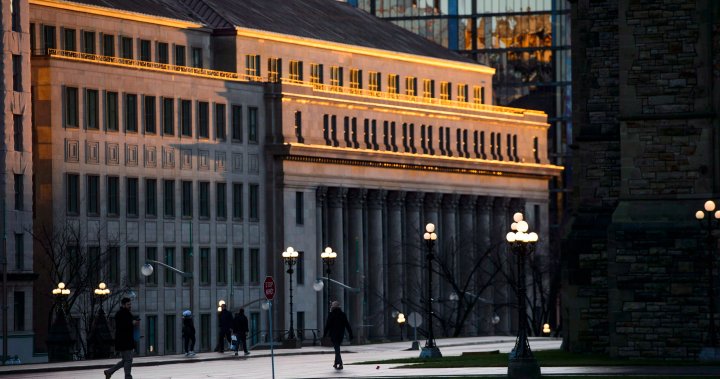Paragraph 1: Initial Incident and Response
On Tuesday afternoon, a “police operation” unfolded near Parliament Hill in Ottawa, triggering road closures and the evacuation of the Wellington Building, a key location for House of Commons committee hearings. The incident began around 12:30 p.m. Eastern time with brief alarm blasts audible on live streams of ongoing committee meetings. Sources revealed to Global News that the operation stemmed from a suspicious package, prompting the swift evacuation of the building. Ottawa police, in collaboration with the Parliamentary Protective Service (PPS), initiated the operation, cordoning off the area surrounding the parliamentary precinct, including streets and pedestrian walkways.
Paragraph 2: Impact on Parliamentary Proceedings
The ongoing House of Commons committee meetings in the Wellington Building were abruptly suspended due to the evacuation order. The human resources committee, chaired by Liberal MP Robert Morrissey, was in the midst of hearing testimony from the head of the Canada Mortgage and Housing Corporation (CMHC). Simultaneously, the public safety committee, focused on Russian disinformation, and the health committee, addressing the opioid crisis, were also disrupted. The evacuation underscored the potential vulnerability of parliamentary proceedings to security threats, emphasizing the need for prompt and effective response protocols.
Paragraph 3: Police Communication and Public Advisory
Ottawa police promptly communicated the unfolding situation via social media platform X (formerly Twitter), informing the public of an "active police operation" in conjunction with the PPS. The police stressed the necessity of avoiding the area and adhering to road closures in the vicinity of Parliament Hill, encompassing Wellington Street and Sparks Street, as well as adjacent side streets and pedestrian walkways. This proactive communication, though lacking specific details about the nature of the threat, aimed to minimize public risk and facilitate the operation’s smooth execution.
Paragraph 4: Resolution and All-Clear Announcement
Following approximately 40 minutes of heightened security measures, the Ottawa police declared an all-clear at 1:45 p.m. Eastern time. Through another post on X, the police reassured the public that there was no longer any danger and that the deployed resources were standing down. This timely update brought a sense of relief, confirming the successful resolution of the situation without elaborating on the specific contents or nature of the suspicious package that initially triggered the operation.
Paragraph 5: Speculation and Aftermath
While the Ottawa police’s prompt response effectively managed the situation, the lack of detailed information surrounding the suspicious package left room for speculation. The incident highlights the sensitive balance between public safety and information transparency during security operations. The brief disruption to parliamentary proceedings underscored the potential impact of such events on the functioning of government, while the relatively short duration of the operation emphasized the efficiency of the response by law enforcement and security personnel.
Paragraph 6: Significance and Broader Context
This incident serves as a reminder of the ongoing security concerns surrounding government institutions, particularly in the wake of heightened global security threats and the increasing occurrence of suspicious packages. The successful resolution highlights the importance of coordinated efforts between law enforcement agencies, such as the Ottawa police and the PPS, in safeguarding sensitive areas like Parliament Hill. While the specific details of the incident remain undisclosed, the event prompts reflection on the need for continued vigilance and effective security protocols to ensure the safety of government officials, staff, and the public. The incident underscores the importance of preventative measures, responsive procedures and effective communication in managing such situations while minimizing disruption to critical government functions.

